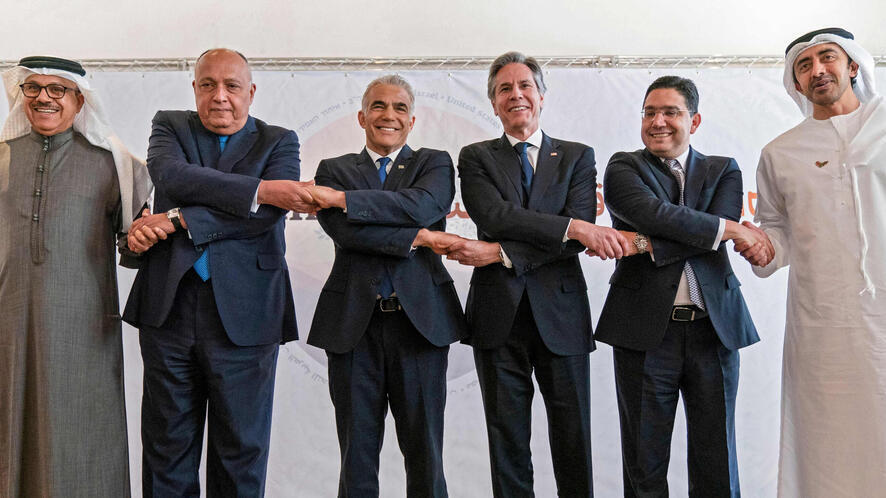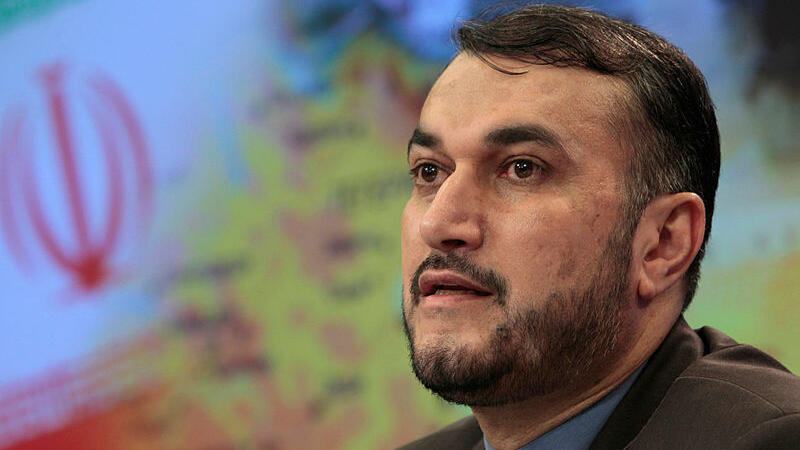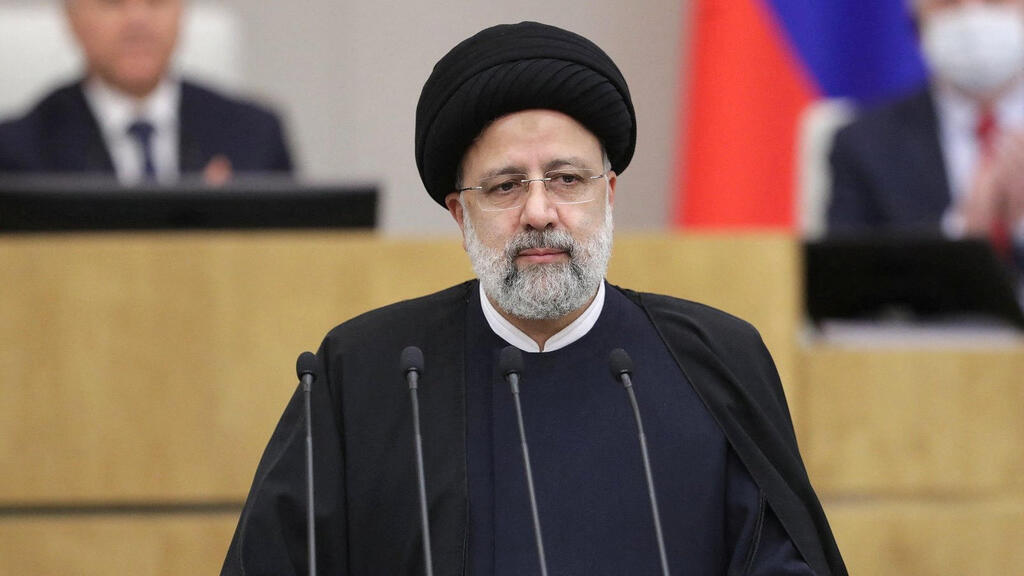Senior Iranian and Egyptian officials held a secret meeting in Oman on June 27, during Egyptian President Abdel Fattah el-Sisi’s visit to the sultanate, informed sources said.
“Egypt assured Iran during the meeting that the Negev Summit is not directed against Iran and will not include any military moves against it.
The meeting discussed the situation in the Gaza Strip, the Syrian issue, and other matters in the Middle East, and opened the door to relations between the two countries,” the sources added.
The Negev Summit, which first met in Israel in March, is a discussion group that aims to promote economic and security cooperation between Israel and its Arab allies.
Iran’s Mehr News Agency confirmed the existence of the meeting in Oman, but it did not specify the issues that were discussed between Cairo and Tehran. Egyptian and Gulf news agencies and newspapers did not report any news about the meeting.
Iranian Foreign Minister Hossein Amir-Abdollahian did say on July 3 that “Egypt is an important country in the Islamic world,” but indicated that there were no direct discussions between the two countries.
Ahmed Al Balushi, an Omani journalist specializing in political affairs, said, “The Sultanate of Oman plays a balanced role to bring views closer. Muscat has good relations with everyone and seeks calm.
“It is not possible to accept any form of military confrontation in the region, which suffers mainly from problems and crises; there are several military confrontations that are already present in the region. The language of dialogue and understanding must prevail,” Al Balushi said.
As for the indirect Iranian-American nuclear negotiations held in Doha, Qatar on June 27-28, a well-informed source said that “the two days of negotiations failed because of the Iranian delegation. The Iranian delegation was intransigent, and the negotiators did not reach any decisions.”
He continued, “The Iranian negotiators seem to have known in advance that the negotiations would fail, and they did not come to achieve results. They toured Doha; they were not committed to responding to the American’s proposals.
“Since the day of the Iranian delegation’s arrival in Doha, they did not talk much about negotiations with the US. They met with Qatari officials and talked about issues related to cooperation between Iran and Qatar, not about negotiations,” he said.
“They visited areas in Doha and met some members of the Iranian community in Qatar,” the source said.
Iran’s Tasnim news agency announced that “the Doha negotiations on the nuclear agreement ended without results.”
The Iranian Foreign Ministry issued an official statement citing an “informed source” saying that the US “insists … that Iran will not benefit economically from this agreement.”
The Doha round of negotiations would have failed no matter what. … The United States is the party that was not serious.
Mohammad Marandi, a political science professor at Tehran University, said, “The Doha round of negotiations would have failed no matter what. The US only wanted to gain more time and ease the pressure on oil prices.
“The United States is the party that was not serious. It wants to impose conditions on its part only. We want stability for our people, and Iran is negotiating to ease pressure on it,” Marandi added.
Awad al-Abdullah, a Saudi professor of political science, said, “Iran is seeking to gain more time, to reach higher levels of [uranium] enrichment, and then it will be in a stronger negotiating position.”
“The Gulf states have repeatedly warned the US administration of this scenario, but the US administration is not responding and is very weak in managing the file with Iran,” Abdullah said.
“Israel will not accept the presence of another nuclear state in the Middle East. The region may witness greater military operations than currently, which can be avoided if the major powers take stricter measures,” he added.
“Of course, the matter will be raised at the next Gulf Cooperation Council Summit with President Biden in Jeddah, Saudi Arabia on Friday, but we do not know how the US administration will react. The most important thing is that this time the countries of the region will not wait for US measures, and they may take unilateral measures to deter Iran,” Abdullah said.
Khaled al-Kaabi, a Saudi political analyst, said, “The United States seems to want to punish the region for the rise in oil prices. It is not taking measures against Iran or its militias in the region.”
“The Gulf states are sure the United States will not impose more sanctions against Tehran. They [the Americans] have eased the pressure on it, and there will be no more to be negotiated at the upcoming summit with US President Joe Biden.”




